Editor viewpoints: Thoughts on the pandemic
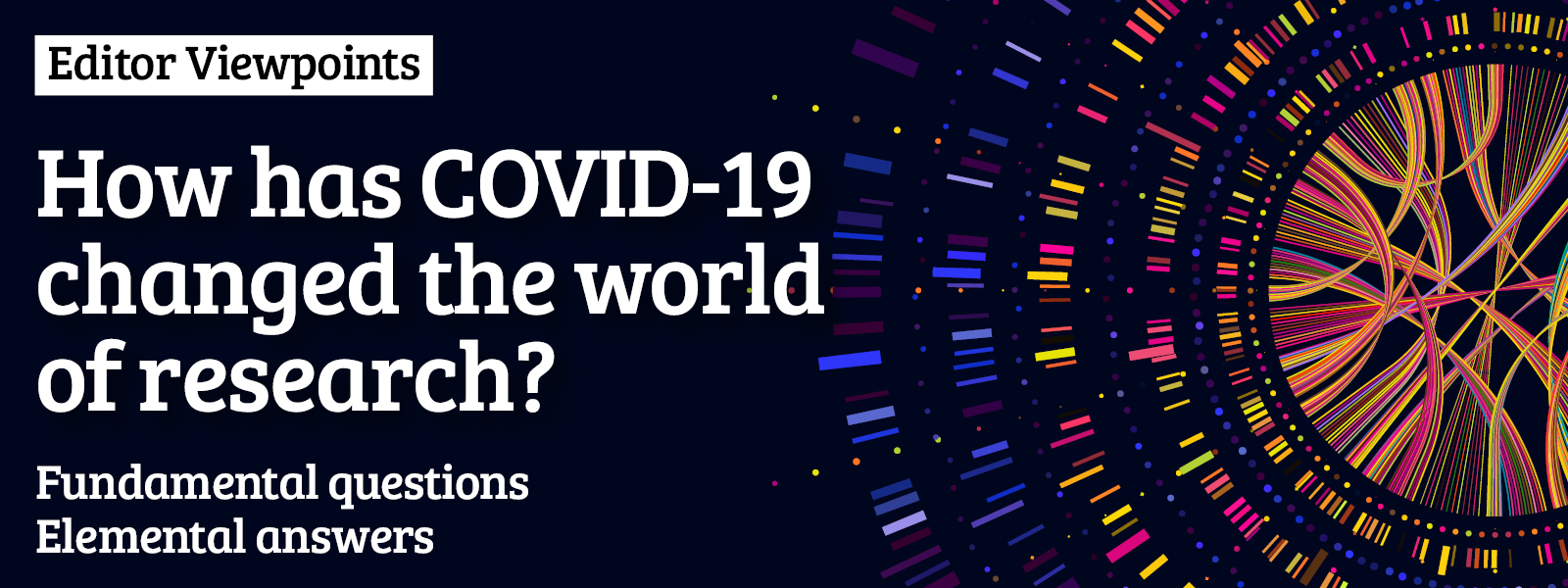
In this highlights piece we cover extracts from our Editor Viewpoints series. In these extracts, editors from across our journals share their thoughts on the COVID-19 pandemic, and how they expect the crisis to change the way we do research in the future.
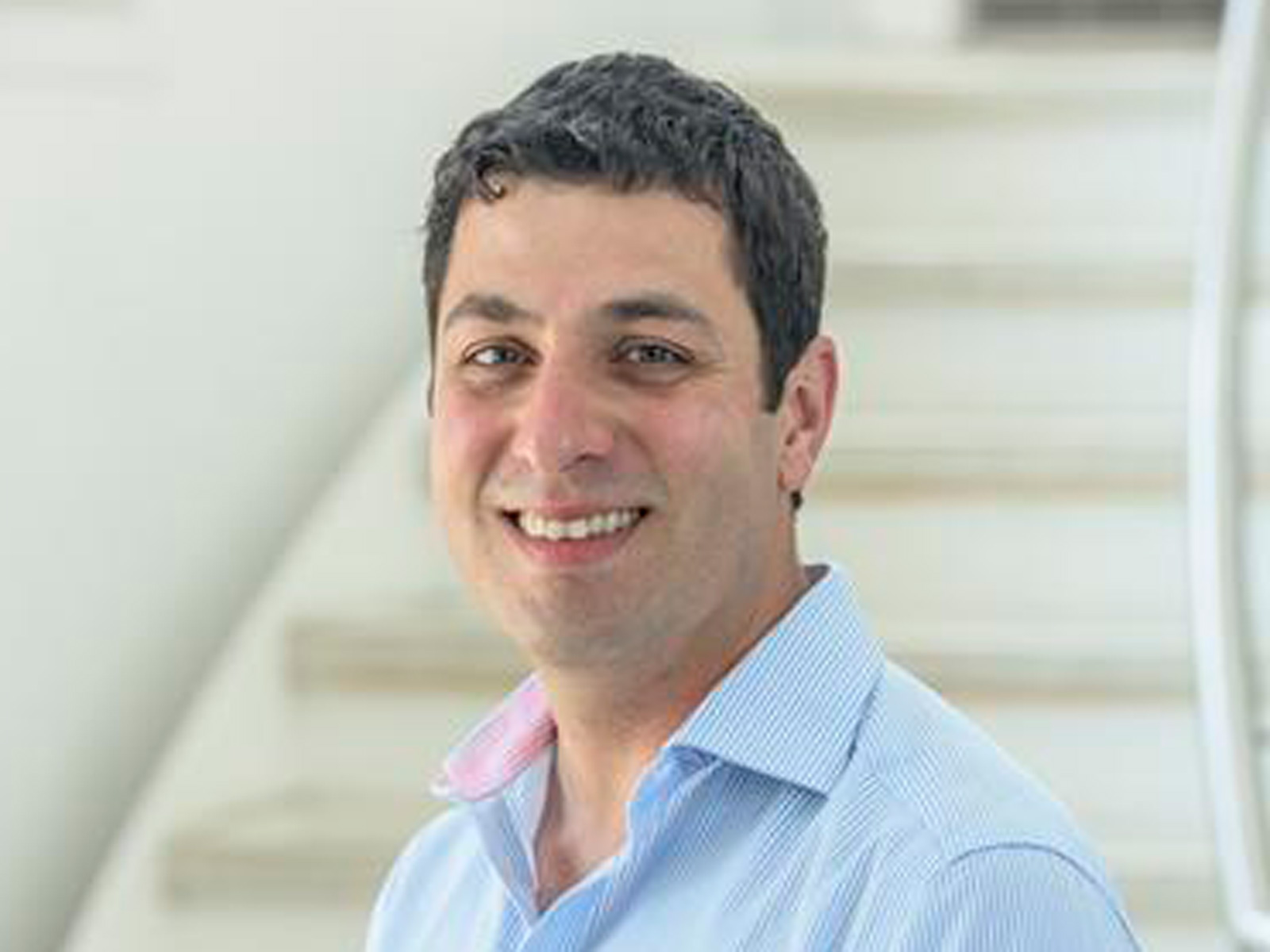
Professor Ali Tavassoli
University of Southampton
Editorial board member, RSC Chemical Biology
How do you think the current pandemic could shape the research community in the short and long term?
In the short term, I think most of us will be trying to cope with the altered living and working conditions. I am hoping that in the long term, blue skies research will be better supported, and that we will be better prepared for other challenges that humanity will be facing, such as another pandemic, antibiotic resistance and climate change.
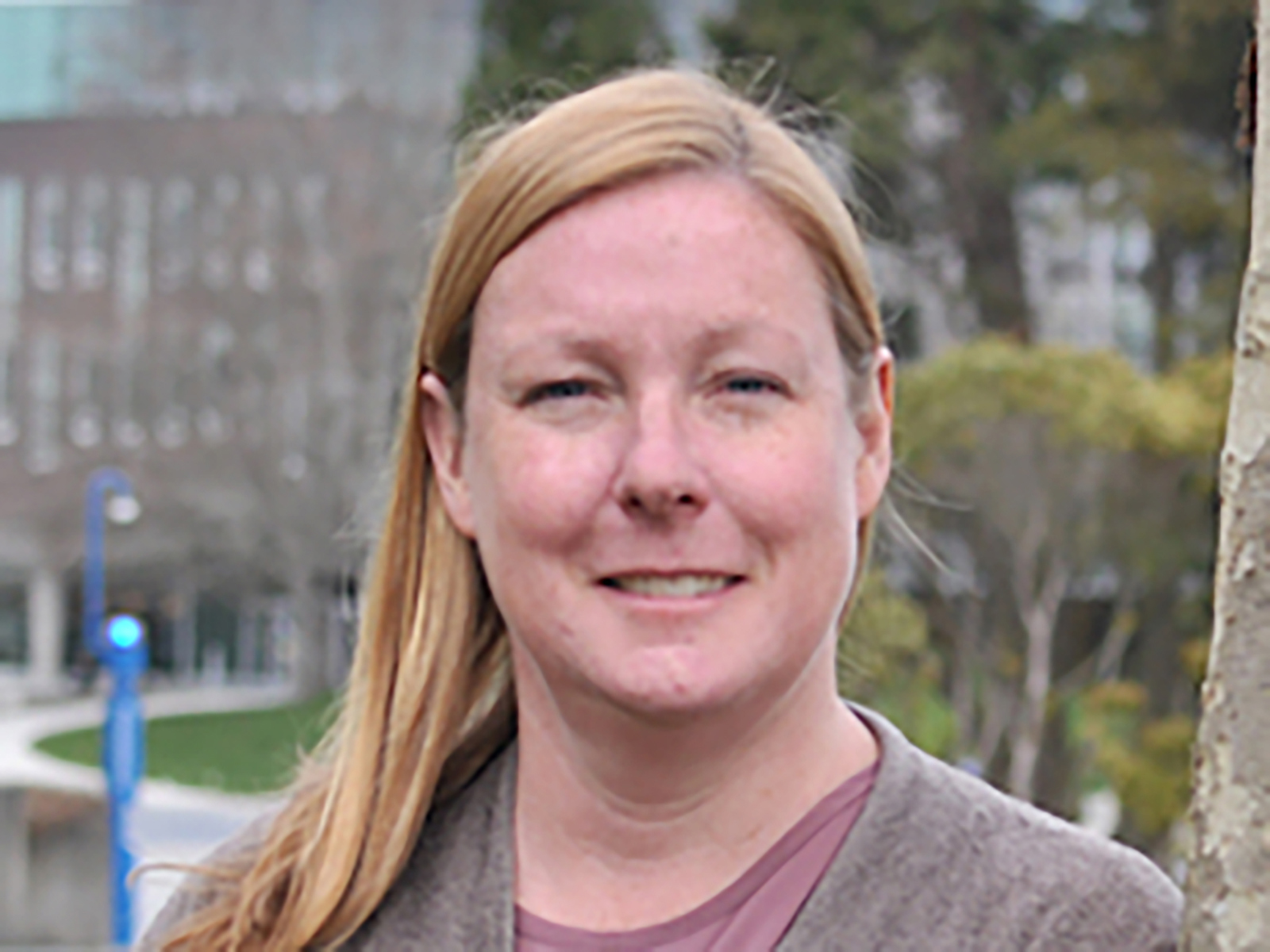
Dr Jennifer Love
University of British Columbia
Editor in Chief of ChemSocRev
How do you progress your research and balance your life during this difficult time? Are there any tips you would like to share with other researchers?
2020 has been an interesting year, to say the least. I was already planning to close my lab in April, as part of the move to the University of Calgary, where I began as Head of Chemistry in late 2019. Even before the shutdown due to COVID-19, our lab had been scaling back regular labwork in anticipation of the move. We were anticipating a disruption even without COVID. However, the hiatus from labwork is must longer than anticipated.
I’ve told everyone that I will support them, financially and professionally, for the duration of their degrees – which, of course, will take longer to complete. For the first two months of the shutdown, I asked students to work on papers and reviews, and to take webinars on topics of interest. We were given permission to enter the labs in late May to begin decommissioning. Normally, I would expect my students to have sighed and accepted this task with resignation. COVID changed all that – they rushed back to lab. Now, a month later, they’re pretty tired of cleaning glassware and getting rid of old chemicals and equipment, but they’re also excited about the move to Calgary.
In my role as Head, I have interacted with the administration of the university. The Provost and Dean of Science have stated unequivocally that no one will be evaluated by their productivity in 2020. All tenure-track faculty are given an automatic extension (which they can decline). On a departmental level, we need to keep this in mind for students who are applying to our graduate programs – those who were undergraduates when the pandemic hit cannot be evaluated as if 2020 were a normal year.

Dr Li-Zhu Wu
Technical Institute of Physics and Chemistry
Associate Editor of Journal of Materials Chemistry A
How do you think the current pandemic could shape the research community in the short and long term?
In the short term research resources – and the general attention of the research community – will shift towards public health and global collaboration on related issues. International collaboration on vaccine development and mitigating the spread of the coronavirus will be encouraged.
On the other hand, the pandemic will inevitably cause economic recession, which could cause funding for scientific research to be limited. Experimental work will be impacted significantly due to the closure of labs.
The pandemic might also cause restrictions on face to face meetings and conferences, with international conferences being more reliant on online meetings, such as Zoom or Microsoft Teams.
In the long term, the life sciences, chemistry, and materials science will attract significant attention. There is so much unknown to be explored.
What do you think researchers should change or be prepared for the potential change caused by the current pandemic?
Governments should be realizing how important it is for scientists, engineers and doctors to work together on problems that have global impact.
Multi-disciplinary studies should be encouraged and governments should encourage and foster international collaborations, especially on the development of vaccines and approaches to mitigating the spread of the virus.
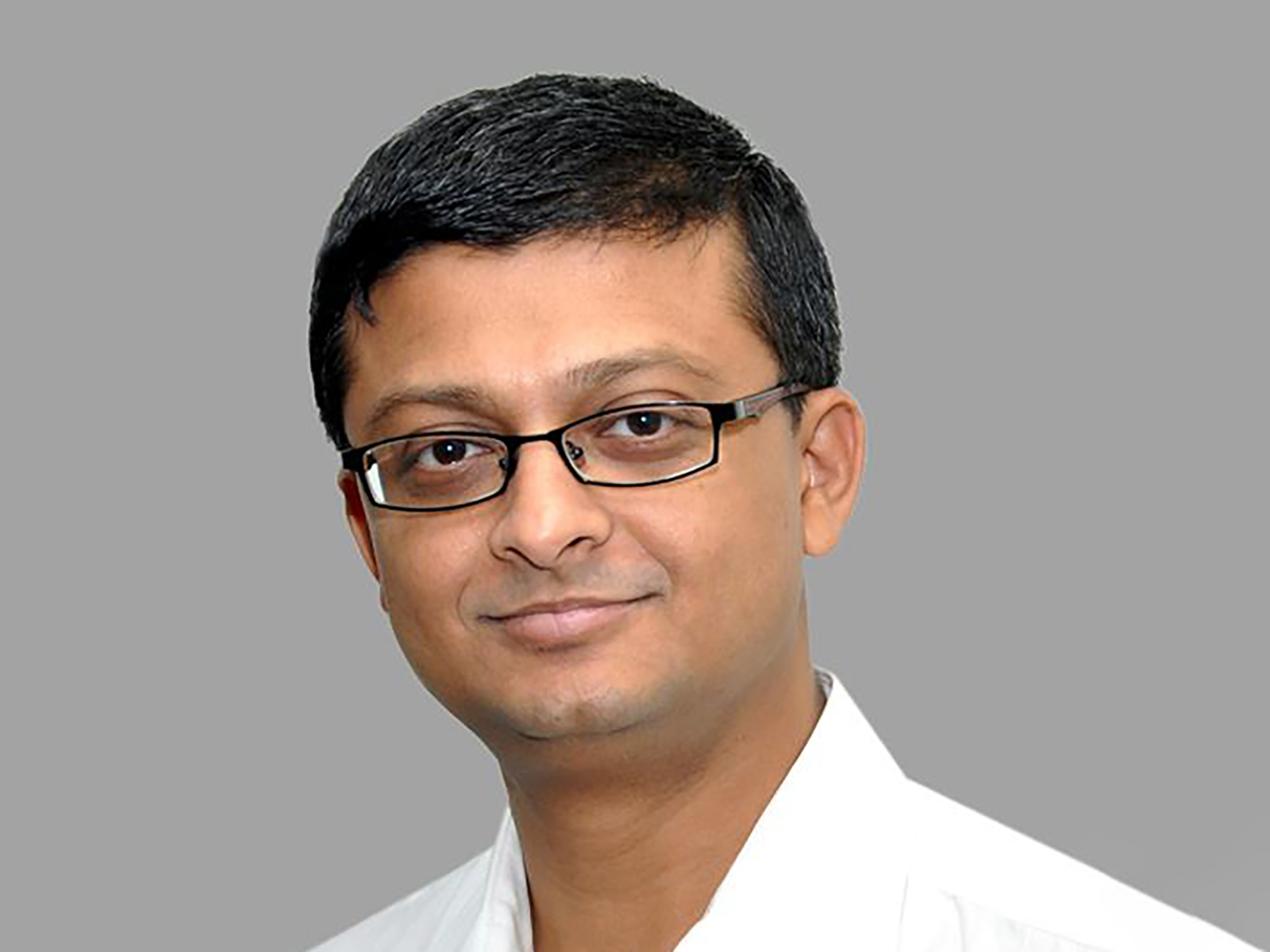
Dr Rahul Banerjee
Indian Institute of Science Education and Research (IISER) Kolkata
Associate Editor of Chemical Science
What’s the biggest challenge you face during the lockdown? How do you overcome it?
IISER-Kolkata laboratories closed (officially) on March 20th, 2020, as we were worried about the health of our students and postdocs. The biggest challenge I faced during the lockdown was to keep my students stress free as they were all worried about their future.
The internet connectivity in remote places in India was not that good, and most of them struggled to use any online software. However, we discussed a lot of diverse topics (over the phone) that we generally refrain from doing otherwise. Anyway, we soon realized that we must be patient. I would request everyone to try to remain positive, though I know it is easier said than done.
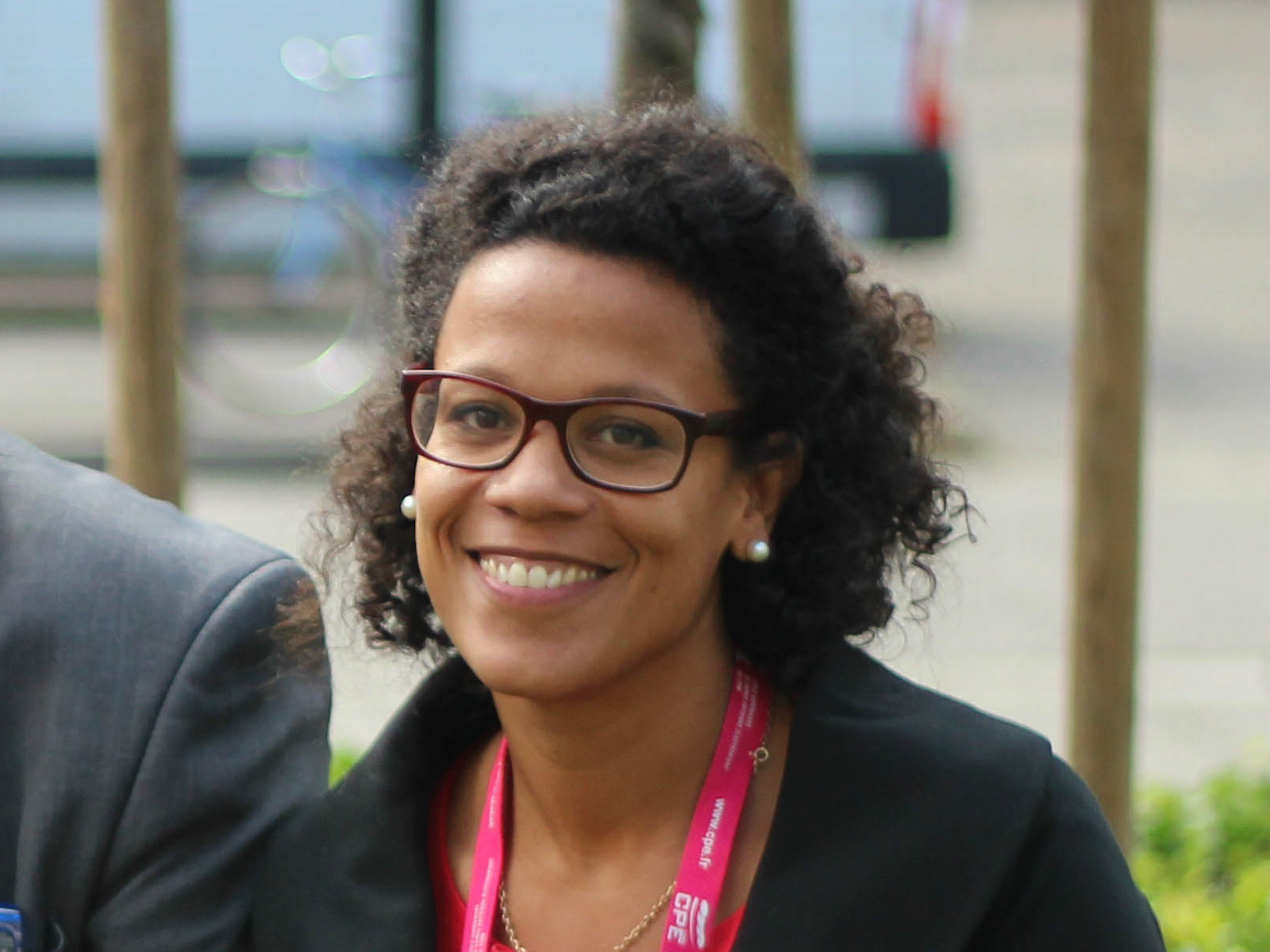
Dr Elsje Alessandra Quadrelli
CNRS and ESCPE Lyon
Associate Editor of Green Chemistry
What do you think should change in response to the current pandemic?
A positive lesson of the pandemic is that concerted actions are possible at an incredible global scale. We were half of the humanity under lock down at the same time. We can be similarly globally connected in the construction of a common future.
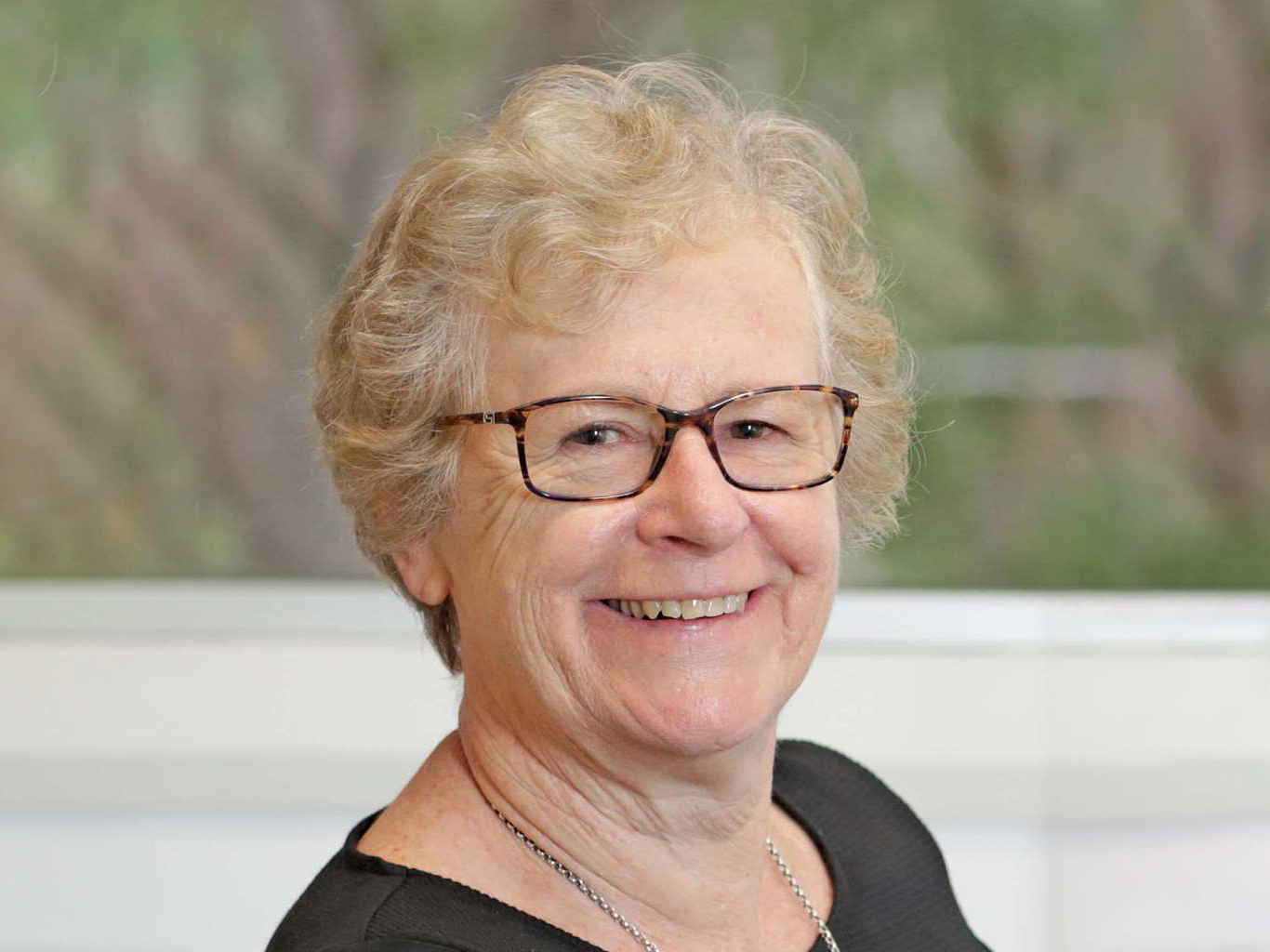
Professor Nicolle Packer
Macquarie University
Editorial Board member for Molecular Omics
What’s the biggest challenge you face during the lockdown? How do you overcome it?
Increased time on connecting with everyone – "zoomed out" is the term I am hearing now. So lack of social contact with real people. Conversations which are usually done for 5 minutes in the corridor take 1 hr on Zoom. My original thought that lockdown would allow me to get grants, papers and thinking done turns out to be a fantasy that could not fit in between Zooms and increased administration time.
How do you think the current pandemic could influence your research field in the short and long term?
As a consequence of the above there will decreased research outputs as well as decreased research funding available for non-COVID research. The research budgets of all countries will reduce across the board as will the number of PhD graduates as international travel restrictions prevent the enrolment of one of the major university intakes/outputs as well as financial inputs.
How do you think the current pandemic could shape the research community in the short and long term?
In addition to the above – behavioural changes will be that there will be less attendance at conferences, more zoom mediated collaborations and more flexible working times. However this will also result in less social contact which I have found is very often the main source of new ideas and collaborations which would not happen if only distance communication continued. We will need to find a good balance of these.
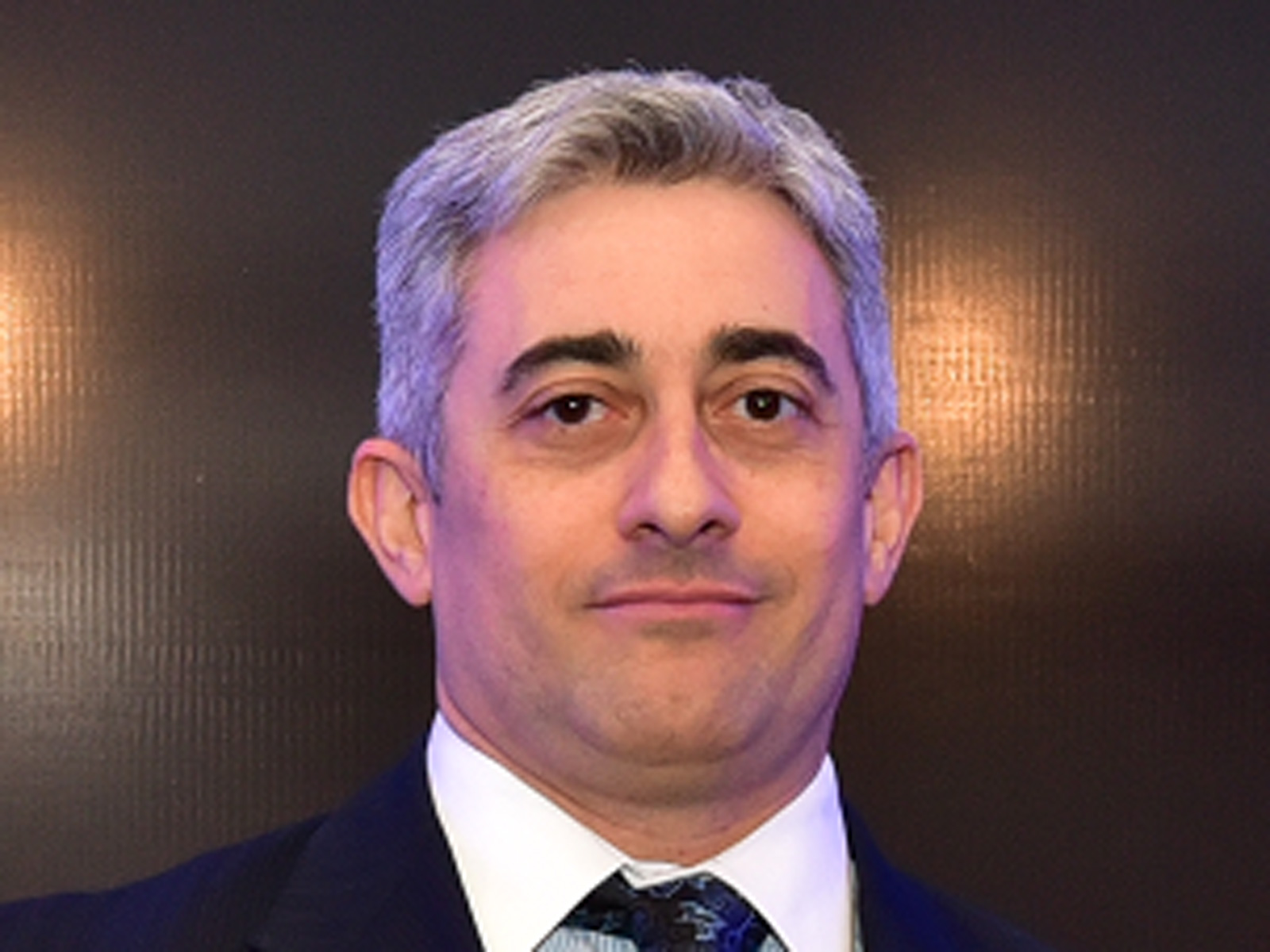
Dr Pablo Denis
Universidad de la Republica Oriental del Uruguay
Associate Editor of RSC Advances
How do you progress your research and balance your life during this difficult time? Are there any tips you would like to share with other researchers?
It has been hard to work at home for those who have a family since we have to teach our children. This pandemic has strengthened the families.
What do you think researchers should change or be prepared for the potential change caused by the current pandemic?
I think that researchers should be prepared to attend to fewer conferences and have less access to specific equipment.

Professor Manojit Pal
Dr Reddy’s Institute of Life Sciences
Associate Editor of RSC Advances
How do you progress your research during this difficult time?
Being confined at home it has been extremely difficult to make any progress with research that was dependent on laboratory experiments. However, luckily my group had some results that were due for publication, and we have used the time effectively to prepare papers and reports. We have also studied the literature extensively and generated some useful and important new data through in silico molecular modelling, which does not require us to be physically present in the lab.
How do you think the current pandemic could influence your research field in the short and long term?
It is too early to comment on the overall influences of the current pandemic. The shutdown has already had negative impacts with research facilities shut down, and uncertainties over projects that might be postponed or cancelled as government priorities change. However, there are also opportunities, particularly in our field [medicinal chemistry]. The whole world is desperately looking for a cure for COVID-19 and we have already initiated some Med Chem projects, aiming to develop expertise and knowledge in this area, and to adopt this in our research towards the long-term goal of such a cure.
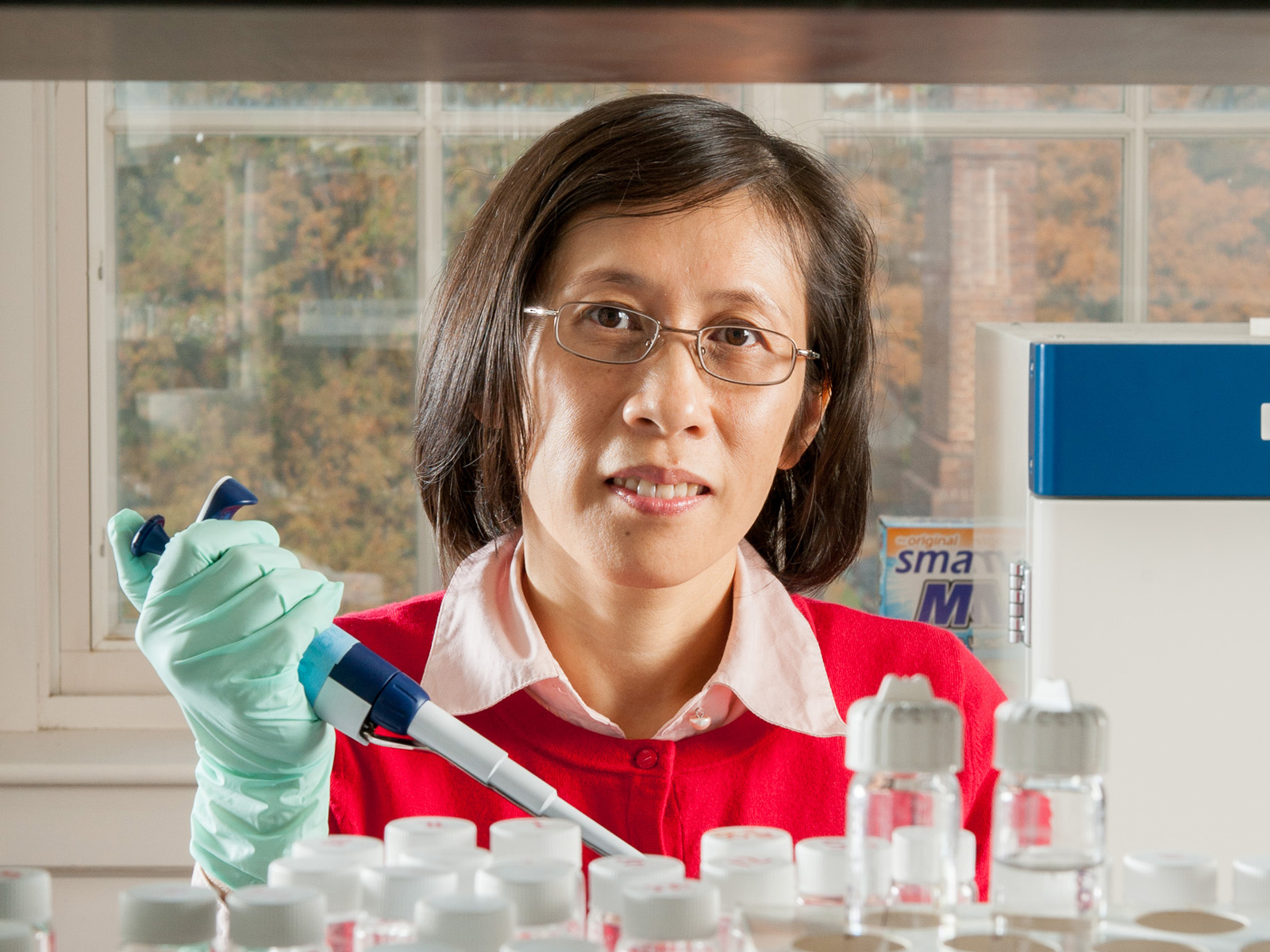
Dr Qin Wang
University of Maryland
Associate Editor of RSC Advances
How do you progress your work during this difficult time? Do you have any tips that could help other researchers?
The strategies I have used to continue working/researching at home during the lockdown include: 1) make and maintain an achievable schedule to complete teaching, research, and service tasks/commitments, 2) meet with graduate students in my research group weekly through video conference, talking about their research progress, questions, concerns, and thoughts, 3) respond timely to all service/minor errands.
Here are some tips that I would like to share with you. First, do not focus too much on COVID-19 news/blogs. Second, prioritize the things you want to accomplish and try to complete them on time. There are lots of remote learning/coping resources and opportunities that you may find helpful to facilitate you through this difficult time. Since you have more time to yourself, try to allocate some time every day dedicating on writing. Finally, focus on things that really matter to you, e.g. being with your family, eating a healthy diet, and doing exercise frequently.
How do you think the current pandemic could shape the research community in the short and long term?
The COVID-19 pandemic has dramatically changed our life in many ways. One of these changes is the major disruption in the research activities for the research community. We will have less lab-based research results and findings in the short term. However, going through this difficult time together, we will learn how to deal with crisis like this and become more resilience to the future ones.
In the long term, it will give us an opportunity to rethink the way we work and communicate. I think we should use this time to rework on existing research process to achieve higher efficiency and productivity and identify new ways to strengthen the research community. Last but not the least, we should support each other and get through this pandemic together.

Professor Feng Zhao
Institute of Urban Environment, CAS
Associate Editor of RSC Advances
What’s the biggest challenge you've faced during the lockdown? How have you overcome it?
The outbreak of COVID-19 has a significant impact on the human health and global economy. Meanwhile, my research is experiencing a range of challenges especially for long term experimental operation, we are also learning to communicate, teach, meet and collaborate on virtual platforms.
Do you have any tips to share with global researchers who are still being impacted by the pandemic, or might be impacted again in future?
No one knows the next global pandemic, but science always goes into the unknown. How to balance the exponential population growth and environmental issues is the key in the research of Environmental Chemistry, and this is what we called "Never forget why you started, and you can accomplish your mission".